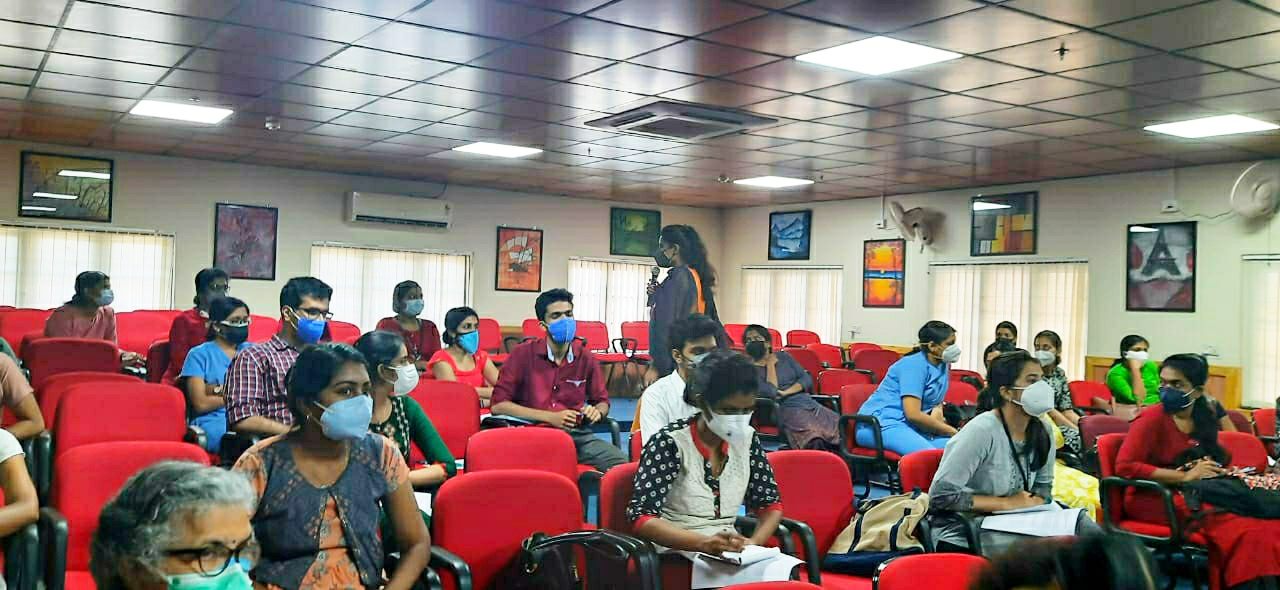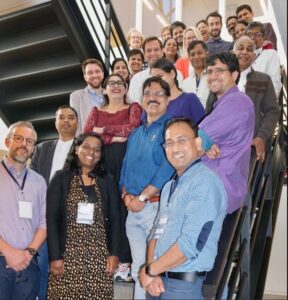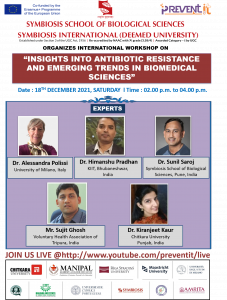Approximately 25 million courses of antibiotics are prescribed every year globally, out of which 10% are prescribed by dentists. The startling fact is 80% of these prescriptions by the dentist are inappropriate. Studies have shown that maximum percentage of dentists (around 90%) inappropriately prescribe antibiotics in India. This compromises patient safety and catalyses the emergence of antibiotic resistance (ABR). Right knowledge and awareness at the correct time is the key to change this scenario. The right time to inculcate accurate knowledge and to bring behaviour change is during the early career phase of any profession. For instance, during the internship, dental students are in a state of semi-independent practice which seems the right time to hone their clinical and patient management skills. Thus, an effort is being made to utilize this opportunity by creating awareness and bring some change.
A two days onsite event was conducted for the dental interns of Amrita School of Dentistry, Cochin on the 16th and 17th of December 2021, as part of the Upgrade- professional development lecture series for the house surgeons. Around 40 interns participated in this two days event. Dr Venkitachalam R, Assistant Professor, Department of Public Health Dentistry delivered the welcome address and explained the need for antibiotic stewardship in dentistry. Dr Rakesh S, Vice Principal, Amrita School of Dentistry inaugurated the event, while Dr Dona Boban, Associate Researcher, PREVENT IT project (cofounded by the Erasmus+) was the resource person for the event.
The first day of the event covered the basics of antibiotics, the extent of inappropriate antibiotic prescriptions (at global, national, and state level) and detailed overview on ABR, its emergence, causes, spread and burden. This was followed by an in-depth lecture on antibiotic stewardship. The speaker discussed in detail the empirical antibiotic use, various factors that can influence the right prescription and various stewardship strategies. A detailed view of the expert on indications of antibiotics in dentistry, antibiotic prophylaxis in dentistry and antibiotic allergies followed. The students were divided into 6 groups and various group activities like quizzes and discussions were conducted in between the 2-hour long session.
The second day of the event started with a quick recap of the previous day session. This was followed by a detailed discussion of various case scenarios. Twenty different cases were discussed focussed on most common cases that dentists come across routinely in their clinical practice. The students discussed in groups and presented their point of views on the appropriateness of antibiotic therapy for each of the case scenarios discussed. The dental interns actively participated in the sessions and these interactive sessions brought a change in the knowledge and understanding about the proper antibiotic prescription practices.







